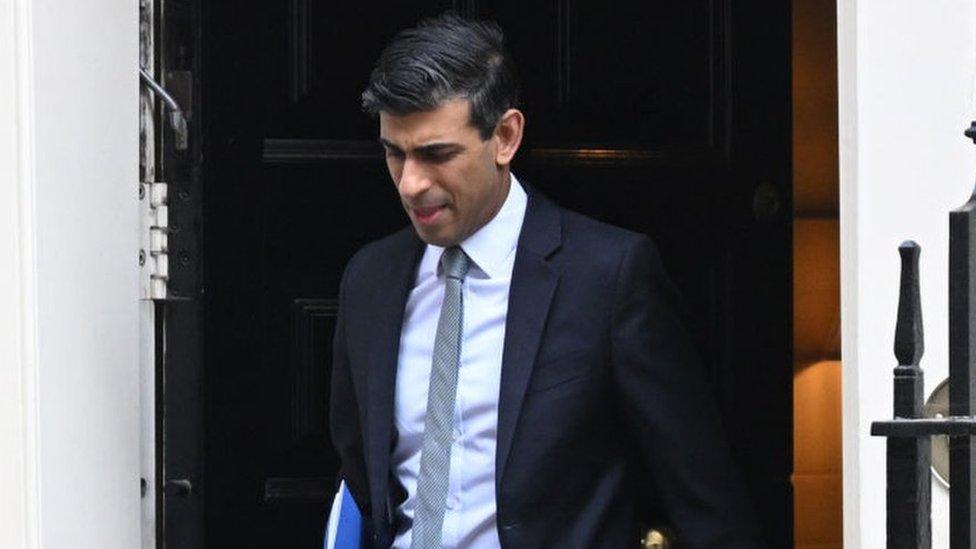Sunak appears to be back in 'whatever it takes' mode
- Published

It is a significant and abrupt change of view on the economy that has led to today's larger than expected announcement on further energy bills support.
It is not just the U-turn on the windfall tax on profits made from now on, and the prospect of that charge being extended in scope and length. There has also been a recalibration of exactly how much and how quickly many millions of British households need support.
This has been driven by the full extent of this year's rise in bills hitting monthly direct debits and credit-drained prepayment meters immediately. The rise identified by Ofgem this week for dual fuel bills for an average house at about 拢220 per month, was already predicted by the Office for Budget Responsibility during the Budget.
The argument that the UK could not risk borrowing to fund households at this time of rising interest rates, has also been temporarily parked. That is exactly what has happened.
Clearly the temptation would be to point to the Prime Minister's party political problems as the reason for these changes - but there is a bigger current here.
The furlough scheme during the pandemic has raised the bar for what, when and how much the public expect the support of the government during a crisis.
A rise in energy costs caused by the aftermath of the coronavirus pandemic and the Russian invasion of Ukraine is an event as beyond the control of ordinary households as a pandemic.
The state is left permanently bigger. And it may make it a little more difficult to cut taxes as planned before the election.
In essence, for several million needy households the Chancellor is back in "whatever it takes" mode, borrowing more to fund giant household rescues from events over which families have no control.
- Published26 May 2022
- Published26 May 2022